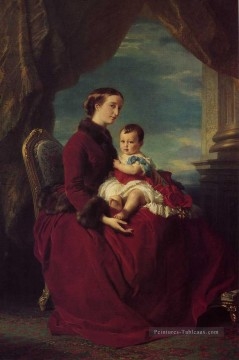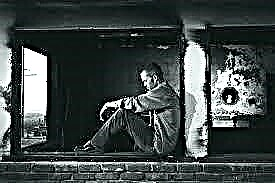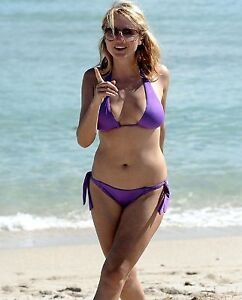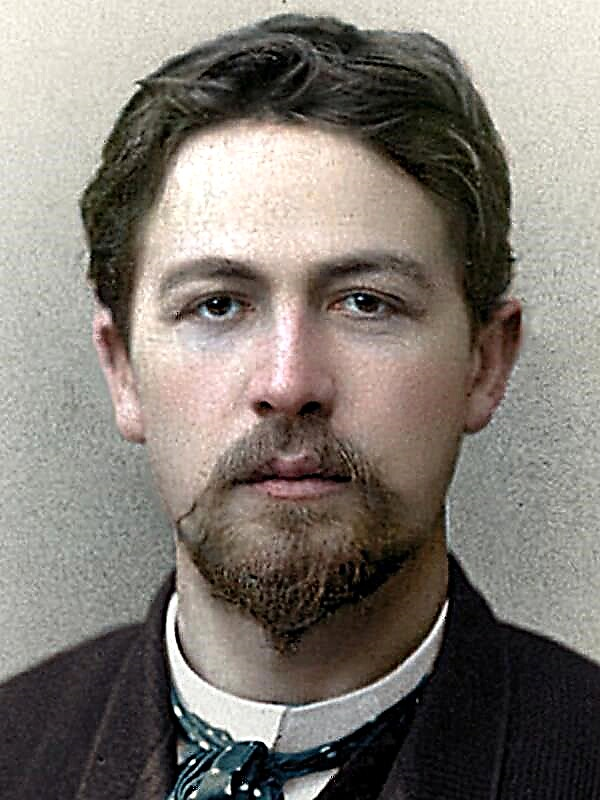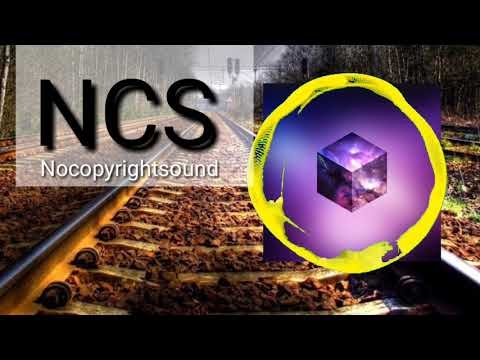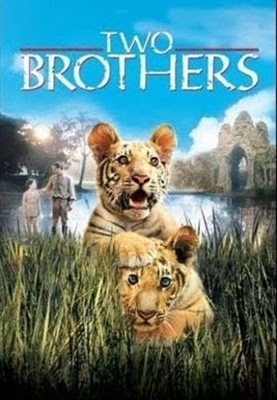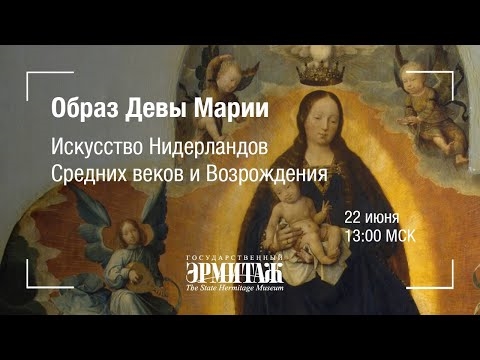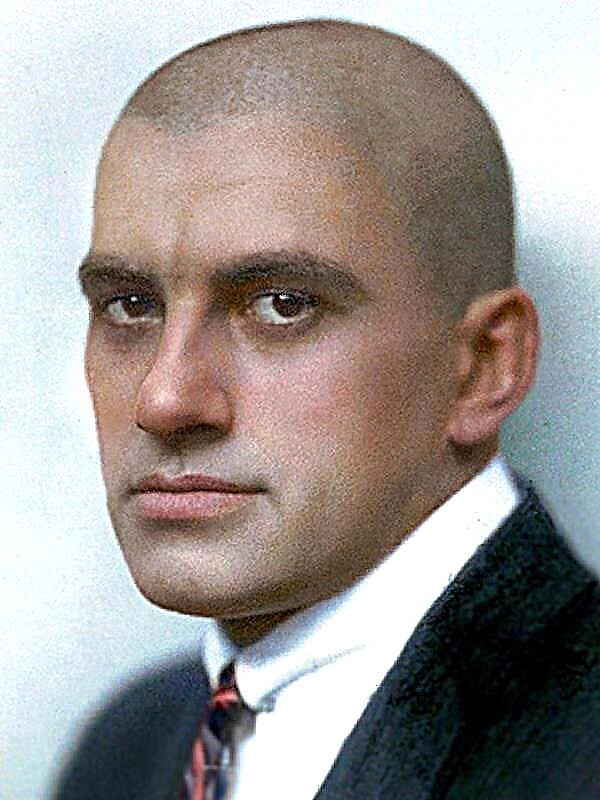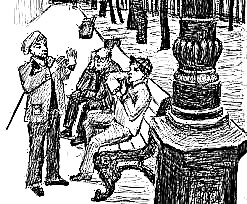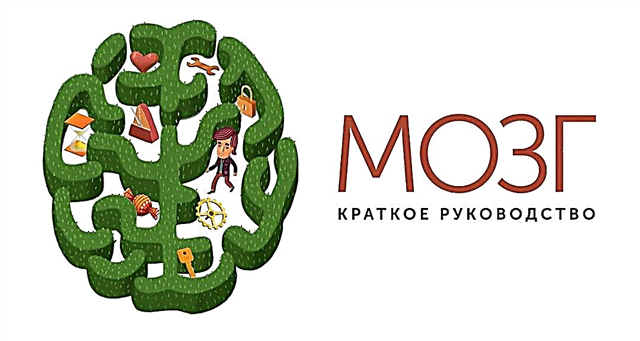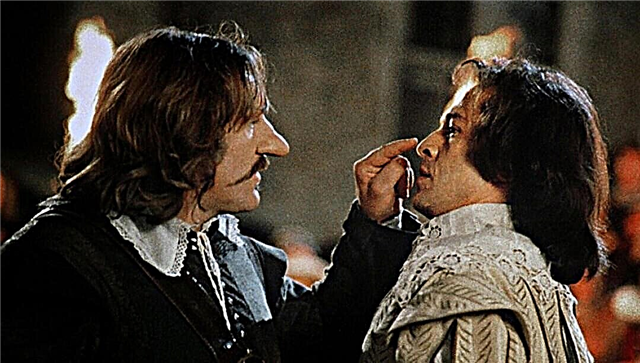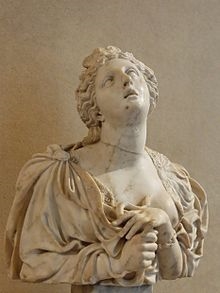“War and Peace” is a book representing our country on the world stage. According to surveys, it is she who is familiar to most foreigners. Therefore, each of us should know its content, at least read in abbreviation. Of course, a brief retelling conveys only the main events that make up the plot, but, nevertheless, it is better than nothing. The Literaguru team hopes that this work will inspire you to read the original. We also recommend that you turn to the analysis of the book.
Part 1
- Chapter 1. Intrigues occur at court and in the light, but the war did not affect anything significantly. In the usual tradition, Anna Pavlovna Scherer also had an evening. They were going to read the patriotic letter of Father Sergius. The main news was still different - Helen Bezukhova fell ill (her real problem was the choice between two husbands). After conversations about various subjects, they read the letter of Sergius, it caused delight, everyone was filled with patriotism.
- Chapter 2 The joy was in the city after the victory on the Borodino field, the information was received personally from Kutuzov. All praised the commander (although earlier scolded). After an unofficial statement on the surrender of Moscow, Kutuzov was again criticized. Also, news came that Helen took a huge dose of the medicine and died.
- Chapter 3 The emperor is saddened by the news of the surrender of Moscow (he was officially informed already). He tells the Frenchman Michaud, who was sent with this news (to his close associate), that he still can’t retreat, he and Napoleon cannot reign together.
- Chapter 4 In difficult times, the militia rose to defend the homeland. It was people who spontaneously coming out against the enemy who were useful. The units that acted consciously in this militia (regiments of wealthy people) brought only destruction. So is Nikolai Rostov. He did not think, did not plan and did not analyze martial law, but simply defended Russia. A few days before the battle of Borodino, the hero went to Voronezh for horses. After a long service, it’s nice to relax a bit and feel comfortable. The militia chief accepted him angrily and significantly. The governor was affectionate and promised help. Nikolai rode the horses to one landowner. After a successful purchase, he went to the governor in the evening. Rostov was greeted enthusiastically, because he is a young and unmarried officer. He danced beautifully, although usually he didn’t. And also flirted with a strange wife.
- Chapter 5 At first, her husband and then the governor distracted him from a conversation with the strange wife of Nikolai. She led him to Anna Ignatievna, who found out about him from Mary, hearing about which Rostov blushed. After talking about Marya and her family, the governor privately advised Nikolai to marry Marya and promised assistance. Suddenly, Rostov told the governor about his heart secrets, including about Sonya and his dilemma. The woman said that it is better to abandon Sonya, their wedding will not bring happiness.
- Chapter 6 Marya did not think about the inconvenience of her travels, since she thought about the death of her father, the death of Russia, her meeting with Nikolai and the loss of peace of mind from her. When Aunt invited Rostov to them, Bolkonskaya for a long time could not decide how to behave with him, but she trusted in internal feelings and behaved naturally and freely, which gave her great charm. Nicholas also behaved, there was harmony in their communication. The governor actively married him, and Rostov surrendered to the will of circumstances, trying not to think that he was meanly acting with Sonya.
- Chapter 7 Upon learning of the brother’s injury from the newspapers, Marya was going to go look for him. Nikolai, having heard about Borodino, became irritable and sad, in Voronezh everything was awkward and wrong for him. At a prayer about the battle, Rostov saw Bolkonskaya, he was overcome by a feeling of pity. He is trying to console her. Marya is attractive to Nicholas by expressing her inner spiritual life. But the marriage frightened him, because he could not imagine such a thing. A letter came from mother and Sonya. The latter renounced claims to him, which greatly pleased Nicholas. The countess spoke about the death of property in a fire, and also reported that Natasha was caring for Andrei.
- Chapter 8 Before writing the letter, Countess Rostov pressed on Sonya with all her might. She promised to give up her love, but hoped that Bolkonsky would survive, Natasha would marry him, and Nikolai would remain only for her. And with these thoughts Sonya wrote a letter.
- Chapter 9 At first, Pierre was treated with respect in captivity, but then placed in a room with all the "suspicious". They were alienated. Soon there was a court where Pierre told the details of his arrest. He was told that it was "bad."
- Chapter 10 Around Pierre saw the devastation in Moscow, in return established the French order. Pierre and the other prisoners were brought to Davout. He treated the prisoner toughly, because Bezukhov refused to give his name. Then Pierre was taken somewhere.
- Chapter 11 It turned out that they led to execution. The prisoners were lined up for execution. But only a few were shot, the rest were spectators, including Pierre. After the reprisals, the French hastily carried the bodies away into the pit, knowing that they were criminals.
- Chapter 12 After the indicative execution, Pierre was “forgiven” and sent to a prison hut to prisoners of war. Bezukhov was bewildered and frightened, but he was attracted by a prisoner of war who took off his shoes in quick and round movements. The prisoner speaks with Pierre, consoles him and treats him with potatoes. His name is Platon Karataev, Bezukhov is imbued with sympathy for him. Plato speaks figuratively, as if by proverbs. After talking with him, Pierre felt better.
- Chapter 13 For Pierre, Plato Karataev personified the whole nation. He knew how and loved to speak, from him Bezukhov comprehended the truth of the people. Plato loved everyone and was affectionate with everyone.
- Chapter 14. Marya went to her wounded brother, along with her nephew Nikolushka. She bore the hardships most easily, charged others with energy. Love for Rostov fed her strength. But she vividly felt grief for her brother. Mary arrived and immediately saw the Rostovs. But the real information was received from Natasha. With Andrei, "something has happened."
- Chapter 15 Andrew softened, as they soften before death, in him appeared alienation from all living things. He, Natasha and Mary had an incoherent, cold conversation. Even Nikolushka Bolkonsky was not happy, because he was already in the other world with his soul. From that day on, the son himself grew up internally; he loved Natasha very much.
- Chapter 16. Andrew felt the approach of death. He used to be afraid of this, now he did not understand her. Alienation from everything appeared in him recently, but suddenly. When Natasha came in, he felt her approach physically. He confessed his love to her, then fell asleep and saw his death. From that time on, he was doomed. From that time on he was farther and farther from the living. And he soon died.
Part 2
- Chapter 1. The historical heroes and, in general, history are led by the masses. So the Tarutin maneuver is called the brilliant decision of the commanders, but in fact it is a chain of coincidences, because the plan was completely different.
- Chapter 2 The famous Tarutin march is that the troops could not retreat directly and went to where there is more food. Kutuzov’s merit is not in his decisions, but in his ability not to interfere with the natural course of history. Soon they sent a messenger from Napoleon asking for peace. Kutuzov did not agree. The Russian spirit has strengthened, and the French mood has fallen, an offensive is necessary.
- Chapter 3 Kutuzov was sent a war plan, which he accepted (but did not follow much). Everything turned out by chance against the will of even the emperor.
- Chapter 4 Kutuzov signed the offensive on October 5. The officer, who was sent to give it to Ermolov, could not find him for a long time, and finally found him at a revel.
- Chapter 5 Kutuzov did not approve of the offensive, but he could not continue to restrain the army. On the appointed day, the commander-in-chief arrived, but the generals did not appear. He felt offended.
- Chapter 6 The troops came forward. The detachment of Count Orlov-Denisov accidentally captured a defector who indicated the location of Murat’s troops. But later the count hesitated. But the detachment nevertheless went ahead, and actually found the French. The soldiers captured a lot of prisoners and booty, because they took the enemy by surprise, but did not go further, because the detachment consisted of Cossacks, eager for looting. At this time, the infantry did not go there, was in a disordered state.
- Chapter 7 Kutuzov understood that this battle would only confuse the troops, and therefore tried to keep them. Nothing much has been achieved. But in the course of the general company, this battle was of great importance as a transition to the offensive.
- Chapter 8 Napoleon took Moscow, but this great achievement did not help him. He did not do the simplest: not a supply of provisions, uniforms - but he allowed robbery. So, he’s not such a genius.
- Chapter 9 Napoleon took many steps in various fields. He tried to follow the maneuvers of the Russian army, provide his troops with resources and persuade Muscovites to his side.
- Chapter 10 All orders were completely aimless: they could not find the Russian army, Moscow was on fire, it was plundered by the French, who had lost discipline. That was the beginning of the end.
- Chapter 11 Pierre has changed for the better physically and mentally. Coming out of his captive barrack in the morning, he speaks with the guards and finds out that the French are about to perform. Plato comes out with a shirt, which he sewed for one guard. The escort takes it, leaving Plato trimmed (although he wants to pick it up first).
- Chapter 12 Pierre even began to like living with soldiers. He suffered physical hardships, but his thoughts were now devoid of uncertainty. He had one general problem that stopped all mental torment - captivity. After its resolution, life should become beautiful.
- Chapter 13 On the night of 6 to 7, the French performed. Pierre decided to find out about the fate of the remaining sick soldier. But nobody cares about him.
- Chapter 14. The prisoners and convoys of the French stretched across Moscow. The attention of the prisoners was attracted by a soot-smeared corpse, a train with women, the sight of a fire. The French grew embittered towards the Russians. Pierre fears for his life. And also realizes that he is free, his immortal soul can not be captured.
- Chapter 15 A small detachment was sent to attack the Bars, as everyone in the headquarters wanted to speak. In addition to Kutuzov himself. The commanders were appointed inconspicuous, but very useful Dokhturov. Instead of one division, the whole army marched towards the Russians.
- Chapter 16. Konovnitsyn is sleeping when the news arrives that Napoleon is in Fominsk. This, like Dokhturov, is an inconspicuous but most important person in the army.
- Chapter 17 During a sleepless night, Kutuzov reflects on the war, believing that patience and time will help to win it. He believed that Napoleon was already on the verge of defeat, but he had to wait. The commander in chief had only one relentless thought - the French withdrawal from Russia. Upon learning that the French emperor left Moscow, Kutuzov burst into tears.
- Chapter 18. Kutuzov is holding back the army with all his might. The troops retreat, and the enemy flees in the opposite direction. Napoleon’s army could not be saved, it was decomposed from the inside.
- Chapter 19. The movement should have a goal, for the retreating French it was Smolensk. And in the long run - France. They needed only not to interfere with what Kutuzov was aware of. The Russian troops tried to cut off or overturn the enemy, but it was only an empty loss of people.
Part 3
- Chapter 1. According to the logic of history, after the capture of Moscow, Russia was supposed to cease to exist, but this happened with the French army. The battles won did not help Napoleon, since the Russian people did not give the enemy food. The Russians did not fight by the rules, and therefore won.
- Chapter 2 The war took on a popular, partisan character, so no rules work anymore. The fact is that it is necessary to take into account not only strength and preparedness, but also the spirit of the army, it was higher for the Russian army.
- Chapter 3 The partisan war began when the French entered Smolensk. Partisan detachments began to be established, Denis Davydov stood at the origins, feeling that this would be right. Units in parts destroyed the French army. Denisov commanded one of these units. He was going to attack the French transport, consisting of things and prisoners, with only one detachment of Dolokhov. There were more Frenchmen, but this did not scare the commanders. Partisan Tikhon Shcherbatov was sent forward to capture at least one tenant.
- Chapter 4 The next morning, Denisov was in a bad mood: there was no news from Dolokhov and Tikhon. An officer arrives with a letter from the general. This is Petya Rostov, Denisov is very happy with him. Petya asks permission to stay until tomorrow.
- Chapter 5 Denisov interrogates the captive drummer boy, but unsuccessfully. Tikhon appears. He escapes under French fire, but remains unharmed. He was the most useful person in the whole party, who could be entrusted with any task. But now the French found him, so he had to rush off.
- Chapter 6 It turns out that Tikhon found the Frenchman, but decided that he was no good and went after those who were “more careful”. The “sloppy” Frenchman said, according to Shcherbaty, that there were many of his compatriots, but they were all poorly trained and easy to take. Here, and from Dolokhov, news came that everything was fine on his part. Denisov cheered up and turned to Peta.
- Chapter 7 Petya begged to be sent to Denisov, with his chief general. He agreed, but forbade Rostov from participating in any partisan operations, knowing the recklessness of the young man. He asks Denisov to send him to the "main". Petya also treats everyone with raisins, gives a knife and tries to please everyone. Rostov asks to feed the drummer and wants to help him.
- Chapter 8 Dolokhov arrives. He looks very simple and amazes Petya. They talk about the future operation, and then about the fate of the prisoners. Denisov believes that they can not be killed. Dolokhov calls Petya with him to the French camp. Denisov does not let him in. Rostov, in order to prove his adulthood, is going to go anyway.
- Chapter 9 Petya and Dolokhov safely drove the sentry. The latter sits with the French around the fire. Having found out everything, they leave. Dolokhov says goodbye to Petya, tells him to leave. He considers him a hero and kisses.
- Chapter 10 Denisov is waiting for Rostov, he is glad that the boy is alive. Petya looks forward to the battle, was in some kind of magical kingdom. The boy heard the song and enjoyed it, as he was musical. Rostov dozed off, but he was awakened by a Cossack who sharpened his saber. It was already dawn, time to pack.
- Chapter 11 Denisov asks Petya to obey and not to go anywhere. But Petya, at the first signal, galloped ahead of everyone with shouts of "cheers." He was killed. Denisov is worried about it, and Dolokhov doesn’t care. Among the captured prisoners and Pierre Bezukhov.
- Chapter 12 The party of prisoners was in disarray during their journey. The carts were beaten off, the horses were dying, the prisoners fled. Karataev had a fever. He was weakening, and Pierre was moving away from him. During captivity, he realized that happiness in man himself lies in satisfying his natural needs. Unhappiness from their abundance, and not from lack. The main thing is not to think about external inconveniences.
- Chapter 13 Pierre walked, looking at familiar prisoners. And I thought in my mind about something important from a conversation with Plato. Yesterday, Karataev at a halt told the story of a merchant who went with a friend to Makaryu. The comrade was killed, accusing the protagonist. At hard labor, after many years, the merchant told the story of his brothers in misfortune. And the killer was found and even confessed to the deed to the authorities. But they did not have time to have mercy on the merchant: while all the papers were on, he died.
- Chapter 14. The prisoners were driven faster, but Karataev could not go. French officers remained with him. A shot came. Howled the dog that Plato tamed.
- Chapter 15 When the prisoners were driven into the parking lot, Pierre immediately fell asleep. In a dream, he realized that life is everything; God is in it.And he remembered Plato, realized that he was no more. He fell asleep again. Screams woke him. These were the detachments of Denisov and Dolokhov. Dolokhov watched as the prisoners were taken out. Denisov buried Petya.
- Chapter 16. The French army fled and declined rapidly. The French turned into looters, no discipline.
- Chapter 17 The French army left Russia, and our troops were catching it. There was no longer any tactics, only flight with the loss of people from the French.
- Chapter 18. During this period, the fact that it was the masses who controlled the historical process is already irrefutable. But French historians still attributed all decisions to Napoleon and his generals, and not to circumstances. The emperor’s bad deeds are explained by his greatness, including the flight from his own army.
- Chapter 19. Why haven’t the French been completely destroyed? The point is not the will of the military leaders, but a combination of circumstances, because the purpose of the Russian army was not to destroy the French, but to expel them, and to destroy the enemy could only be done at the cost of their own destruction.
Part 4
- Chapter 1. Natasha and Mary felt a spiritual wound in themselves after the death of Prince Andrey. Only the two of them were not hurt, because the girls became close. But life does not give forever sadness. The first was taken out of Mary's longing by vital cares: it was necessary to deal with the estate, move to Moscow, raise a nephew. Natasha was left alone, loneliness tormented her, but it was necessary. She recalled the last days of Andrei and cried. One of these days she was called to her father, news came of Petya’s death.
- Chapter 2 Up to this point, Natasha was mistaken for the family. But when she found out about her brother’s death, she changed: she was pierced by an electric current of new grief, but she felt that the ban on life was lifted. Her mother called her daughter and fought in a fit. Natasha consoled the countess, trying to remove her grief with her love, did not leave her and did not sleep. On the third day, the mother cried for the first time, which meant a little relief.
- Chapter 3 No one could care for the countess, except for Natasha, she was always with her mother. The countess lost half her life. Natasha, on the other hand, resurrected, as she realized that love in her was still alive, and this was the main reason for her existence. Misfortune still brought Rostov and Bolkonskaya closer. They could live only in the presence of each other, it was more than friendship. Natasha was physically weakened, so she went with Mary to Moscow to consult a doctor.
- Chapter 4 The Russian army was exhausted, losing people. Kutuzov struggled to save the soldiers and wait. He understood that everything was already over, foreign generals who did not want to distinguish themselves did not understand this. And so the battle near Krasnoye took place, where the exhausted fighters beat each other.
- Chapter 5 Historians considered Napoleon great, and Kutuzov - a miserable court liar who did not allow the Russian army to destroy the French. In fact, Kutuzov did the most for this. He knew how to feel the mood of the masses and remain a simple person. He foresaw everything, because in his soul there was a popular feeling.
- Chapter 6 The French after the battle looked pathetic. Kutuzov felt sorry for them (he went around the troops). Turning to the soldiers, he thanks them, asks for a little more patience and calls for mercy.
- Chapter 7 Warriors in the parking lot breaking a barn. Officers drink tea in the huts. Everything is quiet.
- Chapter 8 The Russian army was in despondent material conditions, but it was more fun than ever. Sitting around the fire, the soldiers joked and laughed. They talk about prisoners, pitying them.
- Chapter 9 The French came to the fighters, who almost lost their human appearance, this is Officer Rambal and his orderly Morel. The first was led to warm up to the colonel. The second stayed with the soldiers, they fed him and began to sing together.
- Chapter 10 The Berezinsky crossing was considered the starting point of the death of the French army, but this is another accident. Its advantage is one: there is an understanding that it is only necessary to follow the enemy, and not try to destroy. Kutuzov was treated as if he had survived from the mind, with condescending contempt. The military leader understood that his time was over, and he himself wanted to rest. Arriving in Vilna, he waited for Alexander I, reluctantly engaging in military affairs. Finally, the emperor arrived. He began to reprimand the Commander-in-Chief reproaches for the slow pursuit, but gave George 1 degree.
- Chapter 11 Alexander wanted to continue the war, unlike Kutuzov. The Commander-in-Chief became unnecessary, his power was taken away, and he was led to resignation. The Russian soul of Kutuzov did not understand the significance of war, because Russia was free. And he died.
- Chapter 12 Pierre, having arrived in Oryol, fell ill and spent three months in fever. As he recovered, he little by little realized that the burdens of captivity would not return, and also realized the latest news - the death of Petya Rostov, Andrei Bolkonsky and his wife Helen. When he was recovering, he felt inwardly free. Now there was no painful search, for everything “why?” one could answer that everything is in God's power.
- Chapter 13 Pierre was the same in appearance, but inner happiness now attracted people to him. He realized that others can look at life differently than he does. And this is neither good nor bad, but simply a fact. Now he could even easily resolve monetary issues. He decided to go to Moscow.
- Chapter 14. After Moscow freed itself from the enemy, many people decided to return there. She was looted and burned, but the authorities managed to exert the strength of the marauding men in the right direction, and life began to boil in the city again.
- Chapter 15 Almost immediately after arriving in Moscow, Pierre gathered in Petersburg. Upon learning that Marya was in Moscow, he went to her. On the way, he remembered Andrei and hoped that he had died calmed. When they meet, they talk about Andrew. During the conversation, a companion is present in the room, which Bezukhov did not recognize. It turned out to be Natasha. Pierre realized that he loved her.
- Chapter 16. Pierre says that he saw Petya after death, and he was beautiful. They told Bezukhov about Andrei (Marya) and about their relationship with Natasha (Natasha herself).
- Chapter 17 After an intimate conversation for some time, they do not know how to start a new one. Finally, Pierre is asked about himself. Mary noticed that he was again a bachelor and a groom. Bezukhov was embarrassed, Rostov took a stern expression. After he spoke in detail about his adventures in captivity. Mary saw that happiness between him and Natasha was possible. And Pierre tells Natasha that there is nothing wrong with continuing to live on. After Bezukhov's departure, a playful smile first appeared on Rostova's face.
- Chapter 18. Pierre could not sleep for a long time, thinking about Natasha. In the end, he decided that “this is so necessary,” which means that everything is fine, and calmed down. Bezukhov postpones departure to St. Petersburg. He considers everyone to be kind and sweet. Lunch Pierre goes to Marya. He spends with them all the time, being unable to leave. One day Natasha goes to bed, and Marya starts a conversation with him about their relationship. The princess believes that Bezukhov can hope, but it's too early to speak with Natasha. The next day, he comes to say goodbye, as he accidentally said the day before that he would leave. Rostov says he will wait for him, inspiring hope.
- Chapter 19. Pierre had no doubt about the correctness of his decision. He was only afraid that Natasha was too good for him. All life was concentrated in her, love overwhelmed his heart.
- Chapter 20. In Natasha there was a change, the power of life and happiness appeared. After a nightly explanation of Marya with Pierre, she found out from her friend what Bezukhov said. Princess is happy for Rostov.
Epilogue: Part 1
- Chapter 1. 1819 year. The historical sea now boiled not on the surface, but in the depths. During this period, many did not like the policy of Alexander I because of its illogicality. But this is wrong, since activity is not controlled by the mind.
- Chapter 2 Assuming that great people lead a story, the concepts of “chance” and “genius” are needed. There was a case, he was used by a genius to achieve his goal. But this is the immediate goal, the ultimate is not available to us.
- Chapter 3 The meaning of events in Europe is the movement of peoples from west to east and back. A lot of people need to move, that's why Napoleon appears - a man is not at all great and random. This crowd of citizens needs it, it just happened to be in the right place at the right time. Before reaching Moscow, “cases” confirm Napoleon’s “genius”, but then they turn in the opposite direction and turn around taking Paris.
- Chapter 4 Ten years later, Napoleon returned from prison and occupied Paris without support. This is the last act in his role. Alexander I has the same role. The highest point of his fame is the capture of Paris. And he leaves this power to others. So each person carries personal goals in himself, but serves common goals that are not available to him.
- Chapter 5 Natasha married Pierre in 1813. Soon the old count died: he was crushed by all life conflicts, grief seized. Nicholas immediately resigned after his father’s death. Family affairs were upset, debts exceeded the value of the property. Rostov could not fix things, he paid the most important debts with the help of Pierre and began to serve as an official, settling with his mother and Sonya in a small apartment. Natasha and her husband did not know about the difficult situation, they lived in St. Petersburg. It was especially difficult that the countess did not understand that there was no money, she wanted to live in luxury. Nikolai and Sonya hardly managed to get along with her. Rostov was estranged from his first love, as the feeling died away perfectly, but it remained loving and almost perfect. Nikolai’s situation was getting worse.
- Chapter 6 Mary arrived in Moscow, learned about the situation of the Rostovs. When Bolkonskaya visited them, Nikolai was cold with her, which pleased Sonya. But the countess praised Marya and demanded that her son go to her. Mary from the meeting with Rostov was upset, but realized that he was hostile to her for some special reason. Nikolai made a courtesy call. They talked for 10 minutes - at least in decency, and he was about to leave, but she looked at him with beautiful radiant eyes. Mary said that his selflessness was wonderful, and she realized that it was his poverty. Bolkonskaya added that, despite all the reasons for the changes in Nikolai, she was sad and painful to lose his friendship. And then she cried. The ice has melted.
- Chapter 7 A year later, Nikolai and Marya got married. The Countess and Sonya moved to live in Bald Mountains. For three years, Rostov paid all the debts and began to increase his wife’s estate. The farm now occupied him, became a passion. Nikolai paid much attention to the peasants, their needs and problems, and not to “debit and credit”. He loved the people and their way of life. Mary did not understand his love, his special world. Nicholas did not think about his activities from a position of virtue. He took care of the peasants for his own good.
- Chapter 8 Nikolai had a bad habit with the peasants - to give free rein to their hands. This really saddened Marya. And he tried to restrain himself. He was not loved in the noble society, although he was respected, since their interests did not concern him. He spent his free time at home. Sonya lived as an engrafter, Marya could not love her, and Natasha said that she was an empty flower, and did not know how to feel like them.
- Chapter 9 Natasha was visiting her brother and children. They were waiting for Pierre from Petersburg, where he was on business. At dinner, Nikolai was out of sorts, but the conversation at the large table was lively, thanks to the fact that he was led by Denisov, who was visiting them. Later Marya began to find out from her husband what was the matter. He did not speak. They had a period of alienation (this happened, despite the general family happiness), usually he was in the pregnancy of his wife, now she was just expecting a baby. Mary was upset; in a moment everything began to annoy her. Nikolai left and lay on the sofa. The wife went to talk with her husband, hoping that he did not have time to fall asleep. Her son Andryusha followed her, who woke his father. Mary took the child away, but he told sister Natasha about his father, and the girl ran to him. The couple reconciled and began to talk. At this time, Pierre returned.
- Chapter 10 Natasha already had four children, and she transformed from a girl into a strong mother. She was engaged in a family, almost never been in society. Having married, Natasha "lowered herself" - she no longer cared about her appearance, only about her relatives. She treasured the company of her beloved people. There were jokes among the family that Pierre was under his wife’s shoe, and that was really so. She did everything for him, and for that he was only hers. In Natasha, only Pierre’s good qualities were reflected, and for this he loved her.
- Chapter 11 Natasha herself insisted that her husband go to St. Petersburg on his business, as she saw great importance in all her mental, inaccessible activities. But when he did not return, she yearned. Calmed her son, who was always there. But Pierre is back. She was incredibly glad to him, even though she first scolded him. Pierre nursed the youngest child when Mary and Nikolai came. The latter does not understand what's interesting in infants. He calls Bezukhov to talk about his business.
- Chapter 12 Everyone in the house rejoiced at Pierre's arrival: the owners, guests, courtyards, children, governesses. Nikolenka, the son of Prince Andrey, adored Bezukhov, and loved Rostov with a touch of contempt. Pierre bought everyone gifts on the list of Natasha, after marriage he liked this lesson. His wife scolded him for wasting money if he bought expensively. They examined the gifts, then went to give them. The old countess was haggard after the death of her husband and son, she felt unnecessary. All homework tried not to ignore her.
- Chapter 13 The countess and her companion took gifts, they were engaged in conversation, but insignificant, so as not to upset the old woman. Voices and laughter were heard from the nursery, they were preparing a present for Nikolai on his birthday.
- Chapter 14. Because the children came to say goodbye and went to sleep, only Nikolay remained. Adults talked about politics. But Pierre wanted to express some idea, his wife brought him to this. The women themselves soon left. Pierre says that it is necessary to change the existing order in Russia by creating a secret society. Nicholas is not at all an oppositionist; he opposes change without the will of the emperor. Denisov supports Bezukhov. But between Nikolai and Pierre, a conflict is growing. Natasha comes, reducing the degree of tension. Everyone who heard Nikolenka was struck by Bezukhov's thoughts.
- Chapter 15 Mary wrote a diary when Nikolai came. It was a children's diary filled with trifles of their life. The husband is struck by the exaltation of his wife. Then he tells her about the argument with Pierre, Marya is on the side of her husband. Next, Nikolai switched to economic considerations aloud, and his wife thought about Nikolenka, suffering from the fact that she loves him less than her children.
- Chapter 16. After a long separation, Natasha and Pierre talk about what cannot be expressed in words, as only loving people say. The wife talks about the virtues of Marya, secretly leading her husband to the idea that she still does not reach her. They themselves are aware of their happiness. The conversation is interrupted by the crying of the child. At this time, Nikolenka woke up from fear, he saw a nightmare in which Pierre and father merged into one image that confronted Uncle Rostov. The boy is going to do something great.
Epilogue: Part 2
- Chapter 1. The subject of history is the life of peoples and humanity. At first, the gods were considered the driving force of history, then individuals. Why did the Patriotic War happen? Historians blame everything on the bad qualities of Louis XIV and his descendants, which caused the Revolution. Next came Napoleon, who brilliantly killed everyone. And he began to fight with Russia and lost. Different diplomats decided the fate of France at the congress. Napoleon went to the Elbe. He was replaced by Louis XVIII. All this is implausible, there is another force.
- Chapter 2 This force is not the interaction of the strength of one person, but the interaction of many forces. Namely, the power of the masses is not recognized by historians, although the theory of the power of a single person is contradictory.
- Chapter 3 The only driving force in history is the movement of the masses. And historians will not get to the point until they understand it.
- Chapter 4 The main thing in the characteristics of the historical person is his attitude to the people. Power - the totality of the wills of the masses in one person.
- Chapter Historians have combined in the newest understanding of the personality of rulers and figures of science and art. But this is also not true.
- Chapter 6 The cause of the event is not an expression of the will of those in power. But there are some conditions.
- Chapter 7 Time condition: event - a combination of circumstances, only a possible order can be executed. If something cannot be done, it will not be executed. Society is a cone in which the lowest link has a larger number and performs a greater number of actions. Top management only orders, taking the least part.
- Chapter 8 So they acted in the war alone, guided by their own considerations, and others came up with excuses for these actions. The movement of history is a set of movements of all participants in an event.
- Chapter 9 Complete freedom is impossible for man. But the impulse to life is the pursuit of freedom. Freedom and necessity are proportional to each other in the actions of people. Each action seems free at the time of commission and necessary subsequently, also with a reason - over time, it becomes clearer.
- Chapter 10 Complete freedom is impossible if a person is connected with the outside world. The combination of freedom and necessity is a clear understanding of life.
- Chapter 11 The task of history is to grasp the movement of the masses and understand their cause.
- Chapter 12 The reason for the story is an imperceptible need, it is time to understand.

